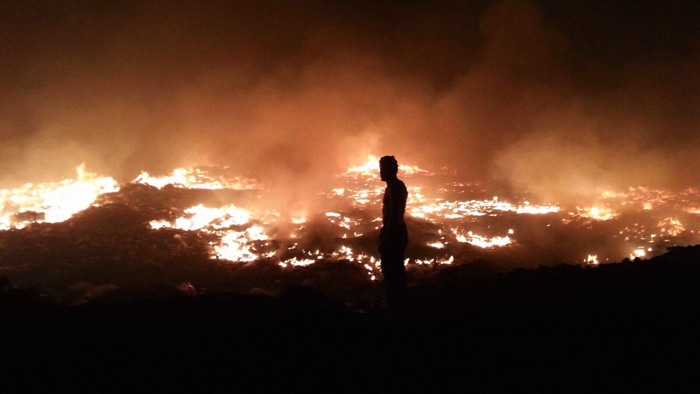




Dir: Leila Kilani | Cast: Ifham Methet, Ikram Layachi, Bahia Boutia El Oumani, Mustafa Shimdat | Morocco, 127′
Leïla Kilani conjures up a world both magical and violent in her long-awaited follow-up to Sur La PLanche (2011). Birdland is set amid the lavish forest that surrounds the faded splendour of the Bechtani’s family’s estate in El Mansouria, near Tangier. It is also home to the ominous Moroccan Black Stork which becomes a central character in this intense eco thriller.
Lina, the youngest member of the Bechtani family, believes herself to be bewitched by the winged creature that once landed on her mother’s grave in tribute to her life. She spends her days and nights recording the flocks on her mobile, along with her father Anis, an ornithologist. But humans too come under her scrutiny. And we meet them through her own unique perspective as the plot unfolds: The general, her grandmother, is the doyenne of the household, who, according to Lina, only cares about her gilded kaftans, and getting rid of the vast estate which has fallen into disrepair in recent years, having been on the market for several decades.
Another reason for selling is the increasing presence of squatters who have been occupying the land for forty years and are now threatening to take over. In the light of this social revolution The General has ordered more guards to protect the property from the marauding masses of Bab Al Sama, and immigration from Libya, and has plans to send Lina to a private school away from her life here fully integrated into nature.
Another key character in the story is the family maid Chinwiya, a divisive figure who The General calls her ‘daughter’ but who turns out to be a touchstone for the brewing troubles in the village, and in love with one of the unrest’s main ringleaders, an arsonist, who has been causing havoc in the area and loss of wildlife with a series of ferocious forest fires in the hope of clearing the area for the construction of housing.
A forthcoming family wedding will trigger a parting of the waves in an inheritance which has become somewhat of a poisoned chalice. Anis considers it vital to retain the land not only for future generations but also, more importantly, to comply with Habous Law, as a charitable foundation for the flora and fauna in this magnificent eco-forest bordering the Atlantic coast by the Straights of Gibraltar.
The wedding is a raucous affair with singing and dancing, Lina recording it all on social media her mobile phone. But these mobile conversations taking place in French, Spanish and Arabic, interweaved into the action, are soon confusing: there is enough power and dramatic heft in Kilani’s direction making the texting feel intrusive, overloading the film’s already indulgent running time, and disrupting the magical atmosphere of a thriller which stands its ground without recourse to this trendy plot device, potentially there to appeal to a younger audience who have lost their verbal dexterity but not their typing ability. But crucially the texting here is vital as Lina simply doesn’t have ‘a voice’ and is forced to watch negotiations and disseminate ideas and feedback to wider audience, capturing the zeitgeist from the internet and social media and even writing keywords and questions all over her body, emerging as a teenage eco warrior and eventually influencing the film’s outcome in her own special way.
Captured on the widescreen and in intimate close-up Indivision is glorious to look at drawing you under its spell with an evocative ambient soundscape of wind rushing through the palm trees and lush undergrowth, exotic birdsong and a pipe score that needles the tense action scenes of this inventive piece of filmmaking. MT
ROTTERDAM FILM FESTIVAL 2023 | TIGER COMPETITION 2023